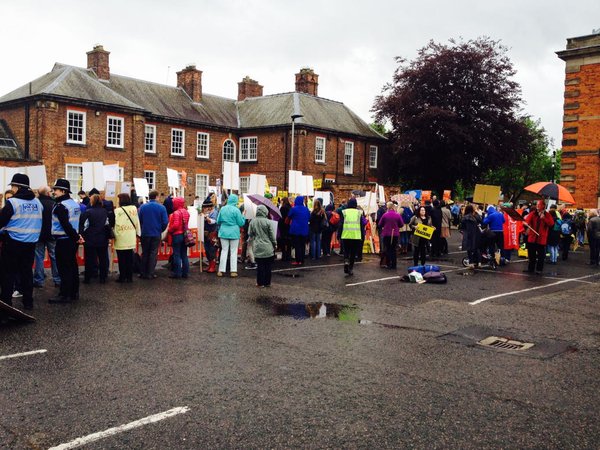By Michael Bradshaw, University of Warwick
County councillors in North Yorkshire have voted seven to four in favour of allowing fracking near the village of Kirby Misperton.
The decision came after a two-day hearing which covered everything from the impact of shale gas development on the UK’s climate change commitments to the benefits for energy security and job creation, while those against the development maintained the risks and uncertainties were too great.
However, this is a relatively modest proposal to hydraulically fracture an existing well at a site that has been producing gas for many years, and which is already connected to a nearby power station by a pipeline. The development programme involves no new drilling and will be short lived.
At the end of the day this was a local planning decision and not a national plebiscite on shale gas development. Councillors rightly felt that they had been put under unreasonable pressure and national scrutiny.
So, while UK firm Third Energy has got its planning permission, it is clear that it has failed to obtain a “social licence” from the local community. Those living in Rydale are understandably worried about the impact of widespread development on the landscape and remain overwhelmingly against shale gas.
Early Stages
Shale gas in the UK is still in its very earliest stages and the Kirby Misperton site is not representative of the exploration and appraisal programme that will determine whether or not it can be developed commercially.
Nonetheless, the industry will feel buoyed by the fact that shale is up and running again after a five-year hiatus. Other companies are waiting in the wings. Chemicals giant INEOS, for example, has already embarked on a programme of seismic surveys and has begun a PR campaign in areas where it already has a license.
Last year the UK government awarded 93 onshore licences for 159 new blocks. Under changes introduced by the 2015 Infrastructure Act, licence holders must undertake 12 months of environmental monitoring. However, soon enough they will come forward with development plans that require planning permissions.
Anti-fracking campaigners are right when they say the Kirby Misperton decision is just the beginning.
What we have seen, first in Lancashire and now in North Yorkshire, is bound to be repeated elsewhere and with growing frequency. Nottinghamshire may be the next venue as developer IGas considers its options.
After its exuberant and unqualified support for “going all out for shale”, the government has now adopted a more measured approach that supports a safe and responsible programme of exploration. In England, at least, it is unlikely to declare a moratorium any time soon. This leaves local communities with no alternative but to protest and make their feelings known, as they did so eloquently at Kirby Misperton, while local planners and politicians will continue to find themselves caught firmly in the middle of the UK’s heated shale gas debate.
To some extent the campaigners’ focus on local politics is unavoidable: regulations require that it is county councils who grant planning permission. This puts the planning officers in an unenviable position.
Councils must treat any shale gas application as if it were a request to carry out a normal industrial activity, and the likely impact, and suggested mitigation measures, must be assessed on the basis of planning law and existing legislation. And, as elected officials, they have to do all this while taking into account the concerns of the local electorate. To put further pressure on the councillors, the government has sought to ensure decisions are reached within the statutory 16-week time frame.
National Benefits Versus Local Costs
The government maintains shale gas development is a “fantastic opportunity” to improve the UK’s energy security and balance-of-payments, attract investment and create jobs and that it can contribute to the low carbon energy transition.
But battle lines have been firmly drawn. On one side lies the Westminster government and the nascent shale gas industry, on the other, those living in areas where licences have been granted and an increasingly loud and effective no campaign, backed by falling public support for fracking.
Councils will continue to find themselves caught in the crossfire. If the cumulative consequence of local planning decisions is that the shale gas industry fails to obtain a “social licence to operate”, then the national government that champions localism will surely have to bow to the outcome of local democracy.
Michael Bradshaw, Professor of Global Energy, Warwick Business School, University of Warwick. This article was originally published on The Conversation. Read the original article. Main image: Guy Shrubsole, Friends of the Earth
Subscribe to our newsletter
Stay up to date with DeSmog news and alerts







